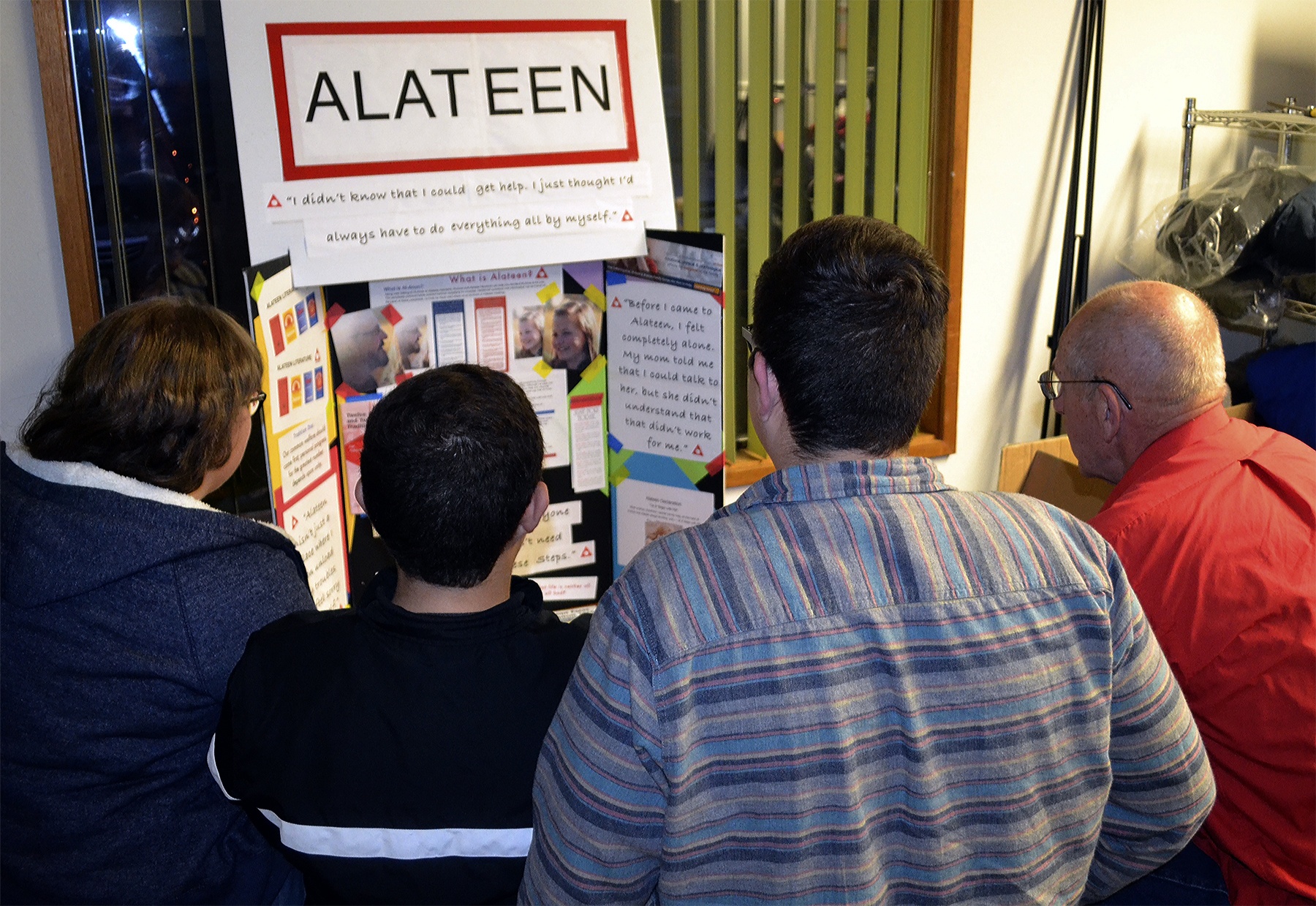Editor’s note: The names in this article are changed because Alateen, and the adult version Al-Anon, are anonymous.
ARLINGTON – Jerry, a middle schooler, thought it was his fault.
Nancy, a sophomore, was angry at the world.
Bob, a senior, retreated into his own world away from his family.
All three have an alcoholic father. And all three are trying to learn to deal with it through Alateen.
Alateen is for young people ages 11-19 who have been affected by someone else’s drinking – a relative or even a friend. It is highly underutilized locally, especially considering how rampant drinking alcohol is.
Alateen is free, and the weekly meetings are run by the teens, with help from a trained supervisor, in this case Joe. It is not a program for young people seeking sobriety.
Bob’s story
Bob remembers his dad drinking since he was little. He quit for awhile, and they started going to friends’ houses for dinners. That stopped when he started drinking again and got so sick he had to go to a hospital.
That’s when Bob’s mom talked him into joining Alateen.
“It taught me not to focus on him, but to help myself,” Bob said.
He said it was a vicious cycle as he would worry about his dad all the time. His grades dropped, and he withdrew from the family.
He would get into confrontations with his dad, and his mom would step between them to calm them down.
“It seemed like he was drunk every day, and he would pick a fight,” Bob said.
When he first heard about Alateen, he thought it sounded “corny. That doesn’t seem like it would help me,” he said.
But he was wrong.
“It taught me to be easier on people, and myself,” he said. “To detach myself from the problem.”
Bob’s grades started to improve.
“I was able to focus on what I needed to do, be nice to people and accept things,” he said.
Bob said his dad is starting to appreciate his family more now. He felt bad after a family conversation where his mom said he sometimes “tormented” his family.
“He appreciates that we stuck with him,” Bob said.
Bob admitted he did not learn from his dad’s mistakes. He said he drank heavily with friends for about a year.
“I felt guilty,” he said. “I was almost glad I got caught and got in trouble for it.”
Nancy’s story
Nancy said her dad’s drinking made her “angry at the world for no reason.” When he drank, he would either be yelling, funny or sleeping. She said she was disappointed in her dad, but didn’t know how to express her feelings.
Alateen, which was recommended to her by a school counselor, has helped.
“I’m more patient now,” she said. “I let it go.”
Nancy said during the Alateen meetings they share their feelings and find they have similar experiences. They learn inspirational slogans each week, that they use to change their behavior, which is the only one they can control
Nancy said her dad is doing better. He is attending Alcoholics Anonymous.
He still drinks some but, “He’s nicer. Not as wild and crazy.”
Jerry’s story
Jerry, the youngest in the group, said he used to blame himself for his dad’s drinking.
“It’s not my fault,” he said, describing what he learned at Alateen.
He said he used to leave money out, and his dad would take it to buy booze. Alateen has taught him how to deal with such incidents.
“Easy does it,” is his favorite slogan. He uses it away from home, too, like at school to remind him to slow down taking tests. Other slogans are: “Live and Let Live,” “One Day at a Time” and “First Things First.”
Joe’s story
Their supervisor, Joe, 73, has been in Al-Anon for 13 years. He said people are never too old to talk things out.
“That seven-year-old is still in there,” he said.
When he was young, his dad once left him in the woods, went to a tavern and forgot about him overnight. On another occasion he put his dads’ suits that he wore out drinking on the driveway so his mom could run over them in a car. He also put sugar in his dad’s gas tank to keep him from drinking and driving.
Both Alateen and Al-Anon teach participants not to judge the alcoholic. But they give tips on how to repair relationships. Joe emphasized that religion is not part of the teaching, but some participants come to believe in a “power greater than self.”
Joe said participants learn to love the alcoholic because if it wasn’t for him or her they wouldn’t have found the program that “allowed me to grow.”
“We don’t tolerate abuse or accept or condone the actions, but we don’t take responsibility for them either,” Joe said.
He said too many people “short-change their own lives” by not talking about problems related to drinking. “We learn to listen and listen to learn,” Joe said. “There’s no quick fix. It’s a cunning and baffling disease.”
How to get help
•Call or text 360-618-0464, a 24-hour hotline.
•Go online to www.dist28al-anonsnoco.org to find out about local meeting times and places.
Al-Anon Family Groups
•No dues for fees for membership.
•Worldwide fellowship with more than 24,000 groups in 115 countries, in existence since 1951.
•It helps families and friends of alcoholics, whether they are still drinking or not.
•It is a spiritual program compatible with all religions or none.
•A mutual support recovery program.
•It is not intended to replace professional treatment.








